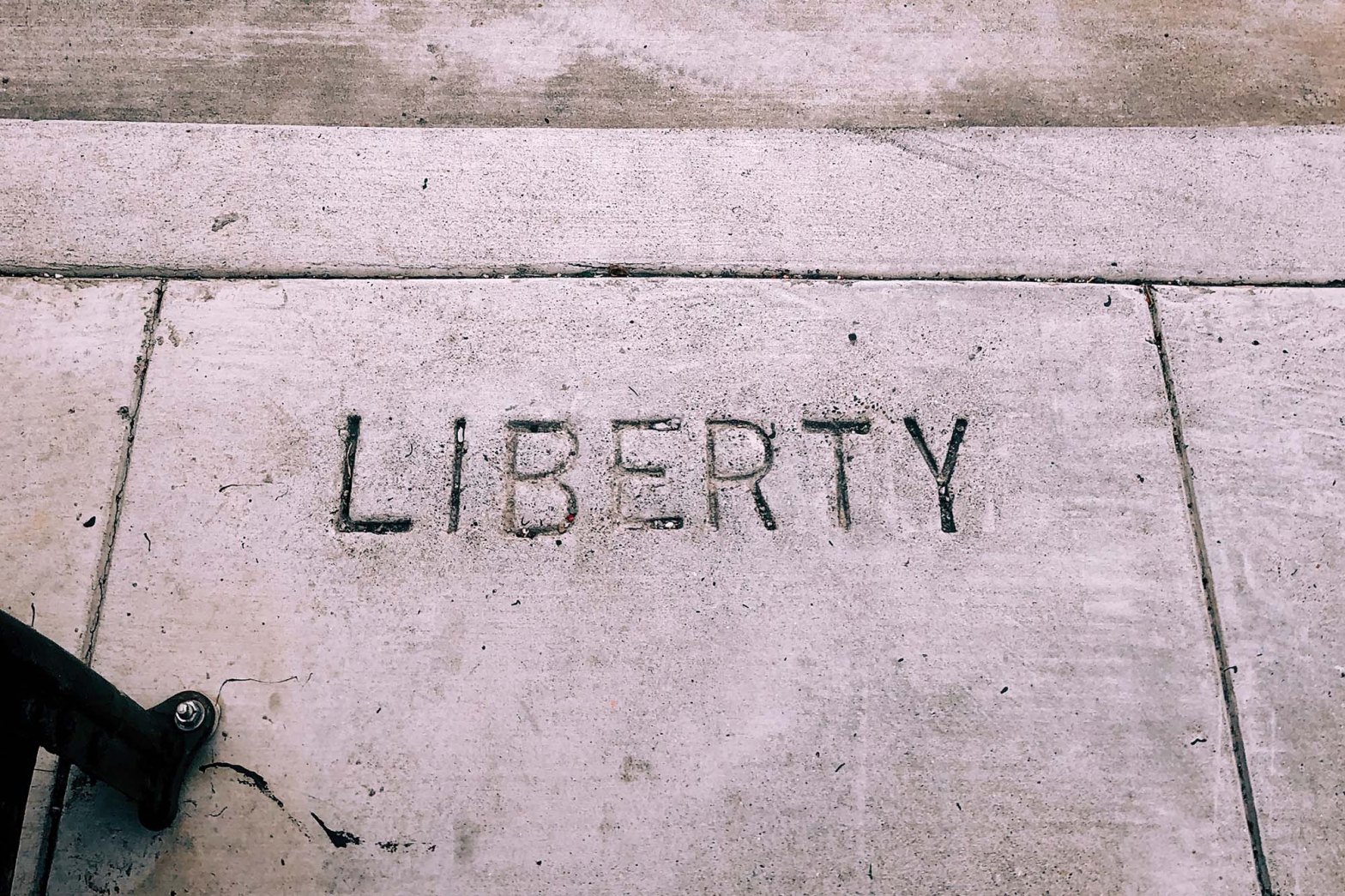Photo by Jon Tyson on Unsplash
I saw a picture of some protesters a while back; they were protesting the lock down restrictions imposed in their area due to the pandemic. One of them was holding a sign that said something like God gave us free will, only evil tries to take it away. I think this is a really good summary of some of the more outspoken expressions of American Christianity. It seems to me that there’s an underlying tension in this statement between American ideals of liberty and the Christian gospel.
What Is Liberty?
Liberty is not just literal freedom (i.e. freedom from slavery or oppression or captivity). Liberty is about the freedom to do things. For many Americans today, this is mostly individual and often manifests as “whatever we want to do.”
The writers of the Declaration of Independence put forth that there are certain unalienable rights, and one of those rights is the right to liberty. The American Constitution is built on that idea: freedom of speech, freedom of choice, freedom of religion, etc. Those are liberties — the freedom to do things or have things. That is, we have the right to choose how we will act and how we will speak.
Notice that liberty is a right; rights and liberties are two different things. Rights are things we’ve decided people deserve. It may be my right to do something, in which case it’s not something I should have to argue for but something that’s inherently owed to me by society.
What Is the Gospel?
In short, the Gospel is good news about the kingdom of God drawing near to us or being upon us. That is, God is desiring after us. To summarize parts of the Gospel of John, God loves the world and desires for it so much that God is willing to die for it.
Part of the gospel is that God gave up liberty in favor of love. Paul argues that Jesus’s mindset was one of humility, self-denial, self-outpouring, and submission to the will of God, which was that God the Son would do the only thing that could be done to lift up creation.
Stories of Jesus echo that position, like when he rebukes his disciple for cutting off the ear of the high priest’s servant. He states that he could call angels to free him, a statement of both authority and liberty, yet he chooses not to for the sake of accomplishing a greater goal. Jesus denies his own liberties for the sake of the Mission.
What Is Free Will?
Free will is the ability to choose what we desire. This is different from both rights and liberties. Free will is a matter of agency; it’s our capacity for choice. It’s not something we’re owed, and it’s not something we have the right to do. It’s simply part of who we are as human beings.
For many Christians, free will is essential to their views of God, because relationships with God are something people have to choose. I don’t want to focus too much on that here, but I think it’s relevant to the sign I mentioned at the beginning.
The claim was that only evil attempts to take away our free will. Free will is seen by many as such an integral part of being human in relation with God that it would be an act of evil to interfere with that capacity.
The Tension Between Liberty, Gospel, and Free Will
The trouble is that liberty can become self-serving rather than communal. The United States of America had formed under oppression and become a liberating call to freedom, but now, being far-removed from national oppression, the call to liberty is often a selfish and individualistic outcry against anything we don’t feel like doing. Where Jesus gave up liberty for the sake of love, many American Christians are giving up love for the sake of liberty.
I think this is correct: God doesn’t take away our free will. However, I think the person with the sign has mistaken free will for liberties; it’s their liberties that are being threatened, not their free will. The fact that they’re protesting proves they still have free will. Unfortunately for them, the Gospel entails that Godly love relinquishes liberty for the sake of the other. Free will is the only agency by which that can be accomplished, so they seem to be condemning themselves twice. First, they prove they have the very thing they claim to be missing: free will. Second, they’re fighting for the very liberties the Gospel suggests they should be setting aside. Love can’t be accomplished by force, but if we love one another, then we ought to lay down our liberties anyway.
Many American Christians have twisted these things around to present themselves as the oppressed and persecuted. It seems to me to be the opposite: free will is being used to choose hatred and oppression in order to secure selfish liberties, and they’re calling it the Gospel.
If you’re enjoying the content on Breaking Bread Theology or find it helpful, please consider supporting this work with a donation. I would love to make this a full-time effort and continue to expand the available content, but that will only be possible with enough support from readers like yourself. I hope that together we can continue to create safe spaces for people to explore faith and theology.

